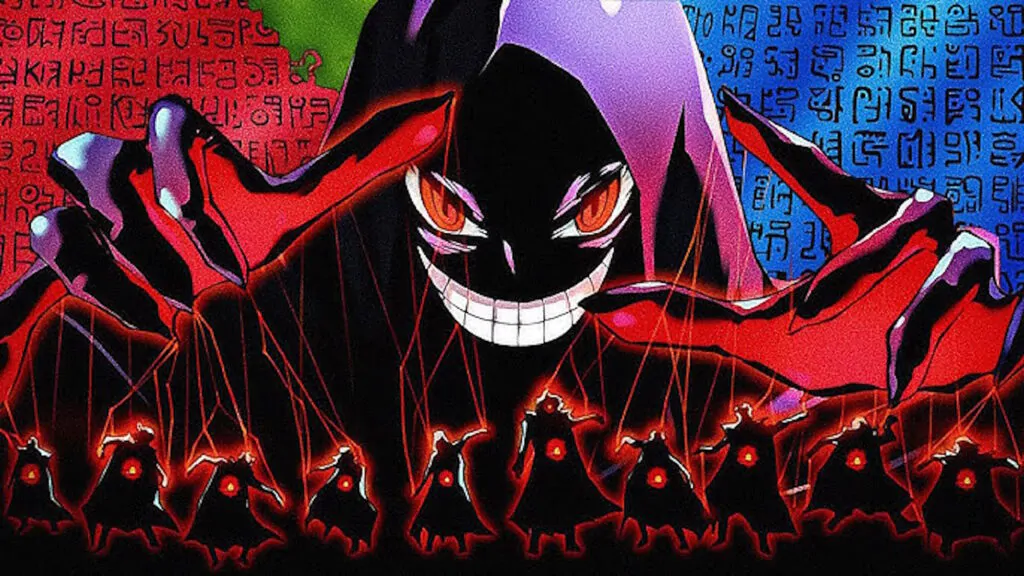One Piece Chapter 1164: Exploring the Power of “Domi Reversi” and Its Possible Limitations
Domi Reversi One Piece Power: Theories and Limits Explained
In the expansive world of One Piece, we are accustomed to encountering Devil Fruits with increasingly bizarre abilities that defy logic. However, the mysterious power held by Imu, the figurehead of the World Government, seems to transcend any narrative devastation we have seen before. In Chapter 1164, we are introduced to unsettling new clues regarding this power, one that appears capable of manipulating not only a person’s actions but also their very essence and consciousness.
While the concept of transforming people into toys, as seen with Sugar’s ability, provides some semblance of comparison, Imu’s ability, known as “Domi Reversi,” suggests a much deeper and more thematically profound reversal—one that alters the very moral identity of an individual. This theory has sparked a wave of speculations among the One Piece fan community, with many attempting to decode the rules behind this seemingly omnipotent ability.
Domi Reversi: The Power to Reverse Identity
A particular theory, which has been gaining significant traction on platforms like Threads, suggests that Domi Reversi, the technique through which Imu can “reverse” a person’s will or even their soul, can only function if the target is in their homeland or a place they regard as such. This fascinating speculation stems from linguistic and thematic observations that add depth to the story.
The term “Reversi” brings to mind the well-known board game, where pieces change color when captured, symbolizing a total reversal of identity. Moreover, when translating “Domi Reversi” from Latin to English, it results in the phrase “I returned home,” a phrase that doesn’t seem coincidental. This linguistic link strengthens the theory that Imu’s ability relies on a connection to the target’s roots or homeland.
The Role of Homeland in Imu’s Power
In this theory, in order for Imu to “capture” and flip a person’s will, making them the opposite of what they once were, there must be a connection between the victim and their homeland. Notably, the recent uses of Domi Reversi have taken place in locations deeply tied to the characters, such as Elbaph, the homeland of the Giants, and God Valley, the birthplace of both Rocks D. Xebec and the Davy clan. In Chapter 1164, even someone as formidable as Xebec could do little against Imu’s power, suggesting an unspoken rule that Imu’s ability is most effective on “sacred” ground for its victims.
The Tragic Fall of Rocks D. Xebec
The theory gains further weight when we examine the legendary pirate, Rocks D. Xebec. In the narrative timeline and within the context of Chapter 1164, it is at God Valley that Imu first unleashed Domi Reversi, resulting in a dramatic shift in Xebec’s personality. A pirate who once dreamed of conquering the world fell victim to this power, and he was even forced to attempt to kill his own family—a task he nearly succeeded in, only to be thwarted by a young Kuma.
This event aligns with Sengoku’s narrative about the fall of Rocks and the alliance between Garp and Roger to kill him, presenting a historical lie crafted by the World Government to conceal Imu’s manipulation of Xebec. This thematic reversal fits perfectly with the notion of power as a moral “flip,” with the World Government hiding the true nature of this devastating ability.
The Implications of Territory-Based Limitations
If the theory about a territorial connection holds true, it would introduce an intriguing limitation to Imu’s power. This would imply that individuals like Gol D. Roger and Monkey D. Luffy, who have no fixed homeland, might be immune to Domi Reversi. Roger, having spent his life at sea, was a nomad, embodying the spirit of freedom rather than being tethered to any particular land. Similarly, Luffy, after leaving Dawn Island, has never truly considered any place other than the Thousand Sunny and the open ocean as his home.
The idea that as long as Luffy remains at sea, free from territorial ties, Imu’s power cannot reach him, adds a compelling twist to the narrative. While this idea might be speculative, it introduces an element of fate that ties directly to the final battle of One Piece—a battle that could take place in the very place where Luffy’s “roots” lie. This location, possibly his childhood home, could be the only point of vulnerability for a character who has embodied the ideals of freedom.
The Fate of Imu’s Power: A New Direction in One Piece
If the speculation surrounding Imu’s power is correct, it would not only reshape our understanding of this villainous figure but also hint at the potential final battle that could be fought on Luffy’s childhood island. This narrative thread weaves together the themes of freedom, home, and destiny, which have been prevalent throughout One Piece. The possibility that Imu’s power is limited by territory adds depth to the story, ensuring that the climactic confrontation will be a true test of character and ideology.
Domi Reversi One Piece Power Domi Reversi One Piece Power Domi Reversi One Piece Power Domi Reversi One Piece Power Domi Reversi One Piece Power Domi Reversi One Piece Power Domi Reversi One Piece Power Domi Reversi One Piece Power Domi Reversi One Piece Power Domi Reversi One Piece Power Domi Reversi One Piece Power Domi Reversi One Piece Power
